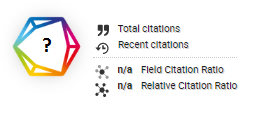IMPACT OF TOURISM IN ALAMENDAH TOURISM VILLAGE ON THE PHYSICAL, ECONOMIC, SOCIAL AND CULTURAL ENVIRONMENT OF LOCAL COMMUNITIES
DOI:
https://doi.org/10.46984/sebatik.v27i2.2191Keywords:
Tourism Impact, Tourism Village, Economic, Physical Environment, Socio-CulturalAbstract
A tourist village is one or more administrative areas with defined limits where the local population manages the tourism-related products. An endeavour to use natural or cultural resources as a tourist attraction is called tourism development. One strategy for implementing community-based and sustainable tourist development, particularly in rural regions, is the creation of tourism communities. One of the villages with a concentration on agro- and nature-based tourism is Alamendah Village, which is operated as a tourist village. Tourism's expansion and growth will undoubtedly have a direct and indirect impact on the neighborhood and its surroundings. In Alamendah Village, Bandung Regency, West Java, this study intends to examine the effects of creating a tourist village on the sociocultural, economic, and physical aspects of the local community. An approach known as the qualitative-descriptive approach was used for this study. By building on observational techniques and performing a web search for documentation studies pertaining to the influence of tourism growth in Alamendah Village, data was collected. According to the study's findings, the Alamendah Tourism Village's tourism-related activities had a good impact on the local community's sociocultural and economic circumstances while having no adverse effects on the surrounding environment.
References
Aguiló, E., Rosselló, J., & Vila, M. (2017). Length of stay and daily tourist expenditure: A joint analysis. Tourism Management Perspectives, 21, 10–17.
Anna, Z. et al. (2018). Perspektif Teoritis Dampak Pariwisata terhadap Lingkungan di Jawa Barat. Denpasar: Unpad Press.
Bintang, J., Karsiwi, R. R. M., & Octaviany, V. (2019). Dampak Aktivitas Pariwisata Terhadap Ekonomi, Sosial dan Budaya 2019 (Studi Kasus: Daya Tarik Wisata Ranca Upas). e-Proceeding of Applied Science, 5(3).
BPS. (2019). Kecamatan Rancabali Dalam Angka. BPS Kabupaten Bandung.
BPS. (2020). Kabupaten Bandung Dalam Angka 2019. BPS Kabupaten Bandung.
BPS. (2021). Provinsi Jawa Barat dalam Angka 2021. BPS Provinsi Jawa Barat.
Chang, K. G., Sullivan, W. C., Lin, Y.-H., Su, W., & Chang, C.-Y. (2016). The Effect of Biodiversity on Green Space Users’ Wellbeing—An Empirical Investigation Using Physiological Evidence. Sustainability, 8(10), 1049. https://doi.org/https://doi.org/10.3390/su8101049.
Djulius, H. (2019). Pengeluaran Wisatawan Asal Malaysia Di Bandung. Pariwisata, 6(2).
E Shofi, A., & Rosyidie, A. (2016). Jurnal Perencanaan Wilayah dan Kota A SAPPK. 4(3), 965.
Herdiana, D. (2019). Peran Masyarakat dalam Pengembangan Desa Wisata Berbasis Masyarakat. Jurnal Master Pariwisata (JUMPA), September, 63. https://doi.org/10.24843/jumpa.2019.v06.i01.p04
Hermawan, H. (2016). Dampak pengembangan Desa Wisata Nglanggeran terhadap ekonomi masyarakat lokal. Jurnal Pariwisata, 3(2), 105–117.
Juniasa, I. D. N. (2020). Dampak Kebijakan Pembangunan Pariwisata Pantai Terhadap Apsek Sosial, Ekonomi, dan Perilaku Masyarakat. Jurnal Sains Sosio Humaniora, 4(2), 887–893.
Kartika, T. (2016). Dampak Pengembangan Pariwisata Terhadap Aspek Ekonomi, Sosial Budaya dan Lingkungan Fisik di Desa Panjalu. Jurnal Hospitaliti dan Pariwisata, 3(1).
Miles, M. ., Huberman, A. ., & Saldana, J. (2014). Qualitative Data Analysis, A Methods Sourcebook. Los Angeles : SAGE Publications, Inc.
Muljadi, A. (2016). Kepariwisataan dan Perjalanan. Jakarta:Rajawali Pers.
Nofriya, Arbain, A., & Lenggogeni, S. (2019). Dampak Lingkungan Akibat Kegiatan Pariwisata di Kota Bukittinggi. Dampak: Jurnal Teknik Lingkungan Universitas Andalas, 16(2). https://doi.org/doi:10.25077/dampak.16.2.86-94.2019
Pedrana, M. (2013). Local Economic Development Policies and Tourism. An Approach to Sustainability and Culture. Regional Science Inquiry Journal, V(I).
Pramanik, P. D., Ingkadijaya, R., & Achmadi, M. (2019). The Role of Social Capital in Community Based Tourism. Journal of Indonesian Tourism and Development Studies, 7(2). 10.21776/ub.jitode.2019.07.02.02
Sahabudin, A. (2020). Tantangan Milenial Di Desa Wisata. Tornare, 2(1), 1. https://doi.org/10.24198/tornare.v2i1.25824
Smyth, R., Watzin, M., & Manning, R. (2009). Investigating public preferences for managing Lake Champlain using a choice experiment. Journal of Environmental Management, 90(1), 615–623. https://doi.org/10.1016/j.jenvman.2007.12.016
Sukirman, O. (2017). Apakah Anggaran Pemasaran Pariwisata Pemerintah Efektif dalam Meningkatkan Jumlah Kunjungan Wisatawan? (Studi Kasus di Indonesia Tahun 2011-2016). Tourism and Hospitality Essentials (THE) Journal, 7(2), 121–128.
Sutrisnawati, N. K., & Purwahita, A. A. R. M. (2018). Fenomena Sampah dan Pariwisata Bali. Jurnal Ilmiah Hospitality Management, 9(1), 49–56.
Suwena, I. K., & Widyatmaja, I. G. N. (2017). Pengetahuan Dasar Ilmu Pariwisata. Denpasar: Pustaka Larasan.
Syarifah, R., & Rochani, A. (2021). Studi Literatur: Pengembangan Desa Wisata Melalui Community Based Tourism Untuk Kesejahteraan Masyarakat. Jurnal Kajian Ruang, 1(1). http://jurnal.unissula.ac.id/index.php/kr
Tambunan. (2011). Teori Ekonomi Makro. Jakarta : Fakultas Ekonomi Universitas Indonesia.
Wahyudi. (2010). Pengantar Ekonomi Mikro dan Makro. Jakarta. Salemba Empat.
Zebua, M. (2016). Inspirasi pengembangan pariwisata daerah. Jakarta: Deepublsh.
Downloads
Published
How to Cite
Issue
Section
License
Copyright (c) 2023 Muhammad Nur Ali Darajat, Zaki Alif Ramadhani, Muhammad Adiyoso, Naufalika Anggi Zidany, Seprina Yana Alidha

This work is licensed under a Creative Commons Attribution 4.0 International License.
Authors retain all their rights to the published works, such as (but not limited to) the following rights; Copyright and other proprietary rights relating to the article, such as patent rights, The right to use the substance of the article in own future works, including lectures and books, The right to reproduce the article for own purposes, The right to self-archive the article








